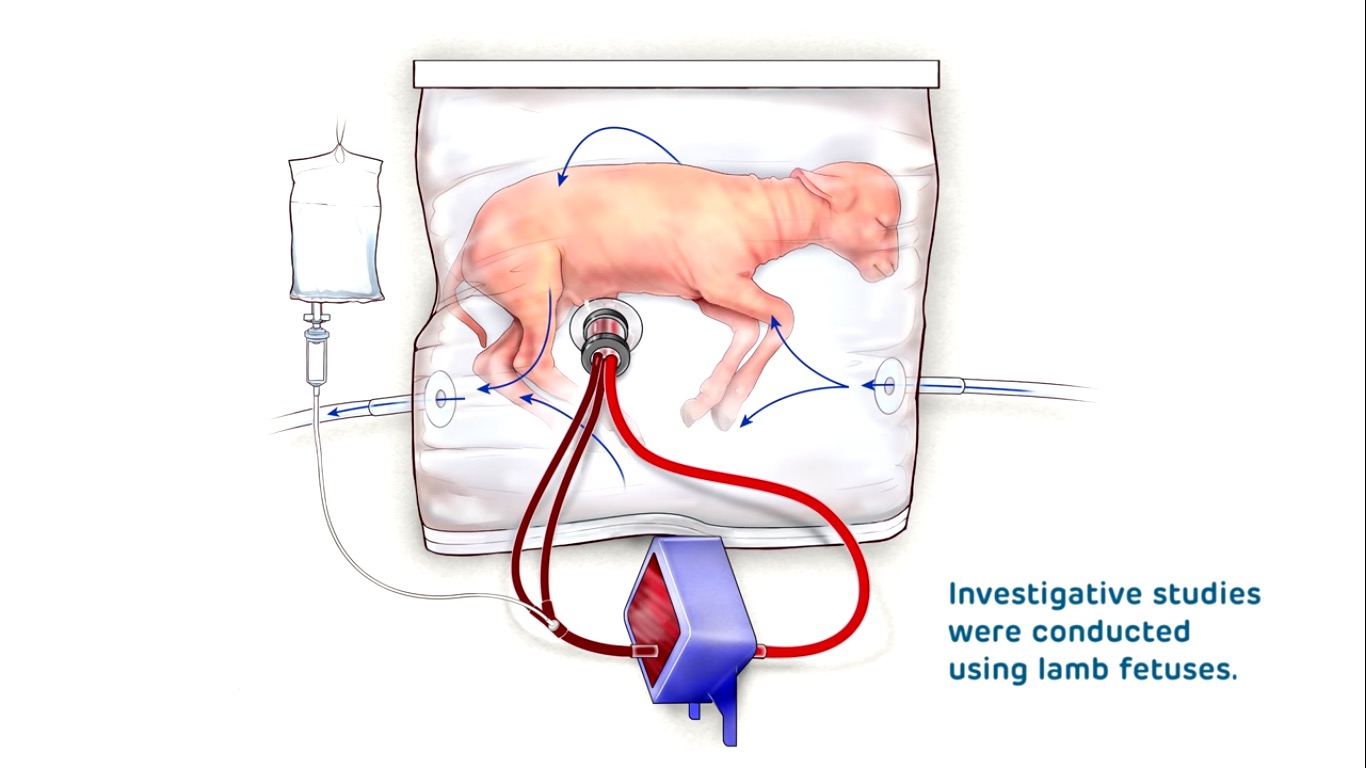Artificial womb successfully grows baby lamb
Since the 1950s, different research groups have been trying to create a system that would assist extremely premature babies during their development outside the mother’s womb.
After decades of continued research, a team from The Children’s Hospital of Philadelphia have created a working artificial womb.
Dubbed the “Biobag”, it is essentially an artificial womb filled with an artificial amniotic fluid. It also has an external oxygenator. An infant will be able to survive inside for a period of three to four weeks.
“Our system is really a recreation of the environment that a fetus normally resides in,” says Emily Partridge, MD, PhD.
During the trials, the team, headed by Alan W. Flake, MD, Fetal Surgeon, attempted to grow lamb fetuses within the Biobag. The fetal lambs were grown in a temperature-controlled, near-sterile environment, breathing amniotic fluid as they normally do inside a natural womb.
The lambs were able to develop normally within the Biobag—breathing, swallowing, opening their eyes, and even grew wool.
One of the key goals of the study is to offset the growth of extremely premature 23-to-28-week babies. These are babies that should not be outside and breathing air just yet because their bodies have not developed enough to cope with the world outside the womb.
“These infants have an urgent need for a bridge between the mother’s womb and the outside world,” said Flake
Through the use of the Biobag, the researchers hope to lower the risk of fatal outcomes or deformities due to underdeveloped internal organs. Flake envisions that a decade from now, hospitals will be equipped with chambers filled with artificial amniotic fluid, where premature infants can continue to gestate. That would be a big improvement over the current practice of placing them in an incubator while hooked up to ventilators.
However, Flake emphasizes that the technology is not for growing fetuses younger than 23 weeks due to the unacceptably high risks.
For now, the research team will continue to monitor their lamb subjects before clinical trials on human infants even begin. Nonetheless these researchers have touched on something that is near science fiction but will be sure to benefit health science in the near future.
“I’m still blown away, whenever I’m down looking at our lambs,” says Flake. JB
RELATED STORIES:
Young blood makes old mice smarter, says study
Study uses wearable gadgets to detect when lovers’ quarrel will occur
Brains behind Facebook’s ‘mind-reading’ tech worked with US defense
